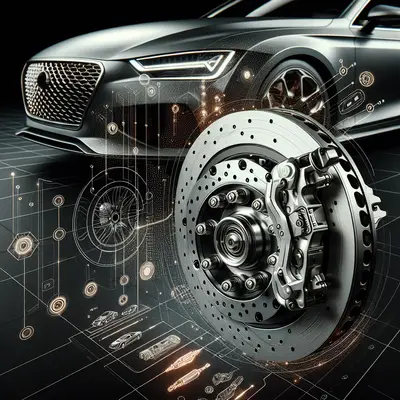Brake systems are not only about halting your vehicle, but it's also about maintaining control, ensuring comfort, and enhancing vehicle longevity. These elements are particularly crucial for those who appreciate the intersection of luxury, performance, and safety.
The Evolution of Brake Materials
The choice of brake pad material significantly influences brake performance and longevity. Recent advancements have seen the rise of ceramic brake pads, renowned for their durability and low noise production. This evolution in brake materials offers a quieter, smoother, and more efficient braking experience, setting the stage for a future where brake wear and noise may become obsolete concerns.
The Emergence of Regenerative Braking
In the world of hybrid and electric vehicles, regenerative braking technology is revolutionizing the way we think about energy efficiency. By converting kinetic energy into electrical energy during deceleration, not only does this technology extend battery life but it also reduces brake pad wear, offering a two-fold advantage for environmentally conscious and efficiency-seeking drivers.
The Role of Brake Fluid
Often overlooked, brake fluid plays a critical part in your vehicle's brake system. This hydraulic fluid transfers brake pedal pressure to the brake calipers, making it an essential element in a vehicle's stopping power. Regular fluid changes ensure optimal performance, highlighting the importance of routine maintenance in brake safety.
The Precision of Anti-lock Braking Systems (ABS)
ABS, a standard feature in modern vehicles, prevents wheel lock-up during emergency braking situations, allowing drivers to maintain steering control. This system is a testament to the technological advancements in brake safety, underscoring the ongoing commitment to enhancing driver control and vehicle responsiveness.
The Future of Autonomous Braking Systems
Autonomous or automatic emergency braking systems (AEB) represent the future of vehicle safety. By using sensors and cameras, these innovative systems can anticipate potential collisions and automatically apply the brakes if the driver fails to respond. As autonomous technology continues to evolve, we can expect to see further enhancements in braking efficacy, contributing to safer roads for all.
Conclusion
The world of brake systems is a fascinating sphere, marked by continuous innovation and an unwavering commitment to safety. These insights reveal the importance of understanding your vehicle's braking mechanisms, the value of regular maintenance, and the exciting future of brake technology. As we journey into this future, one thing remains clear: our ability to stop effectively remains as vital as our desire to forge ahead.



